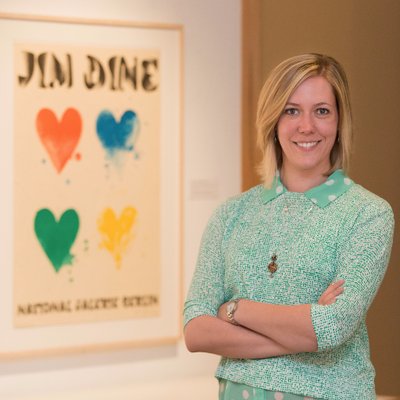
Professor Melanee Thomas, Department of Political Science, University of Calgary, researches the causes and consequences of gender-based political inequality, with a particular focus on political attitudes and behaviour. Her current projects include an exploration of the effects of gender, socialization, and psychological orientations to politics (funded by a SSHRC Insight Grant), a project examining the role electoral districts play in voter turnout, party competition, and representational diversity (funded by a SSHRC Insight Development Grant), and an exploration of public and elite opinion about energy transition (funded through the University of Calgary Vice President Research).
Professor Thomas will be participating in the annual conference of the McGill Institute for the Study of Canada on March 21 and 22. This year’s theme is Federalism and Canada’s Shifting Political Landscape. In advance of her participation on the Provincial Politics panel, Professor Thomas spoke to the McGill Reporter.
Back in 2012, you completed a PhD in political science here are McGill and you are now a tenured, Associate Professor of Political Science at the University of Calgary. What are the main themes of your current research and teaching activities?
My current research program has 4 main planks: a study about gender, stereotypes, and political engagement (funded by a SSHRC Insight Grant); an investigation of how electoral districts shape voter turnout, party competition, and representational diversity; research into which factors structure how people feel about energy transition; and study into how gender affects the role of parental status in politics. While some of my work is comparative, I almost always include Canada as a main case in almost all of my research projects.
This means that I often get to teach a course in Canadian politics, either at the undergraduate or graduate level, as well as courses on elections and public opinion, gender and politics, and research methods.
You’re in Montreal this week to participate to the annual conference of the McGill Institute for the Study of Canada, which is organized in partnership with the Institute for Research on Public Policy. The theme of the conference this year is federalism and Canada’s changing political landscape ahead of the next federal elections. What will talk about, exactly?
There’s this stereotype that Albertans are much more conservative than are other Canadians, even though there’s good academic evidence already (see Anderson 2010) to show that’s not the case. So, I’ll be talking about where Albertans are (and aren’t) different from other Canadians in how they think about politics. Some of those differences will be key for upcoming elections, so people who are curious to know what those are should be sure to come and attend the conference!
Albertans should go to the polls soon in provincial elections that could dramatically alter the province’s political map. What do you expect from this forthcoming provincial campaign and elections?
At this time in 2015, no one anticipated the dramatic changes in Alberta politics, so I’m loathe to make predictions beyond that I think the campaign will matter. Electoral politics are interesting in Alberta in that, despite holding the same positions as most Canadians on most issues, voters are significantly more likely to vote Conservative. What makes the current context interesting is that the Alberta NDP, previously a minor player, appears to have maintained most of the support it captured in 2015, minus one key group of voters — people who preferred the Wildrose but were really angry at the PCs. Those folks have solidly gone over to the UCP.
Beyond that, though, my one hope for Alberta politics is to see the development of genuinely competitive multi-party electoral politics. The 2019 provincial election will show if the province is actually headed in that direction.
In the fall semester, you will return to the McGill Institute for the Study of Canada to take up an Eakin Visiting Fellowship in Canadian Studies. What do you plan to teach and conduct research on, during your stay?
By the fall, I should have a lot of great new data on energy transition, so much of my time will be spent working with that. And, since I collaborate on gender and politics work with several colleagues in Montreal (all McGill alums!), I’ll be spending a good amount of time on that, too. The course I’m teaching is on the history and effects of regionalism in Canadian politics; it’s new for me, but I hope to offer it regularly when I head back to Calgary in 2020.
The 24th MISC Annual Conference: Federalism and Canada’s Shifting Political Landscape, will be held on March 21 and 22, at the Faculty Club (3450 McTavish St.). Get more information and register online.
